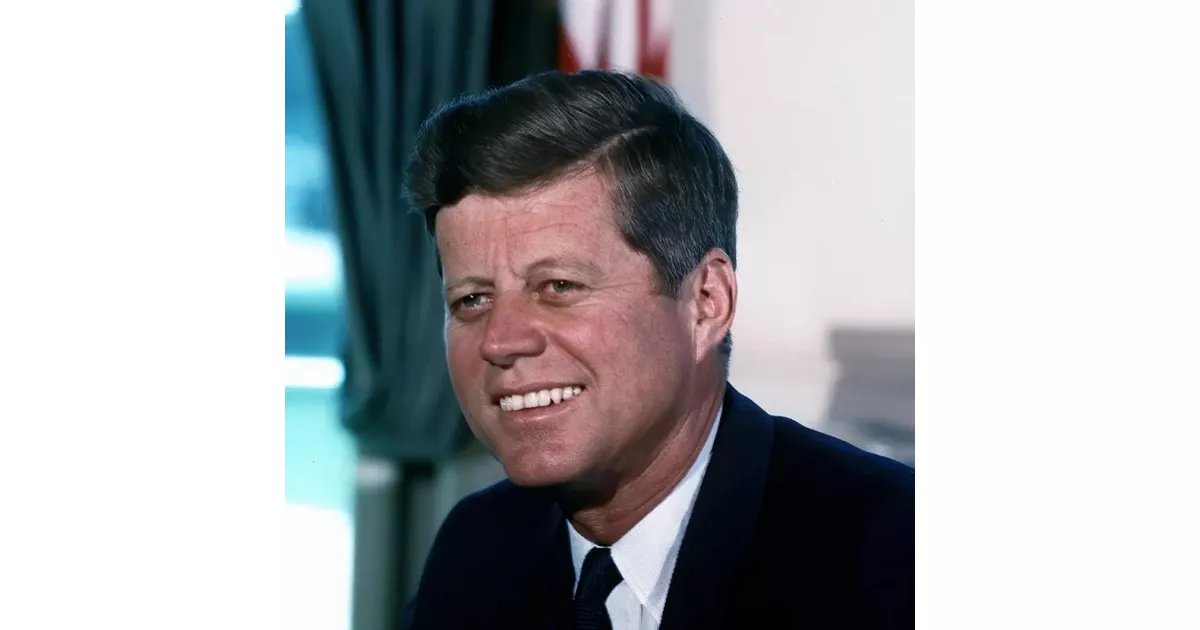A detailed timeline of the impact and legacy of John F. Kennedy across different fields.
John F. Kennedy (JFK) was the 35th U.S. President, serving from 1961 until his assassination in 1963. The youngest person elected president, he led the nation during the Cold War, focusing his foreign policy on relations with the Soviet Union and Cuba. A Democrat, Kennedy previously represented Massachusetts in both the House and Senate.
1957: Pulitzer Prize for Biography
In 1957, Kennedy won the Pulitzer Prize for Biography for his book "Profiles in Courage".
June 1963: Kennedy Proposes Guarantees to Become Federal Law
In June 1963, the guarantees Kennedy proposed in his speech became federal law when President Johnson signed the Civil Rights Act.
1963: LIFE Article and "Camelot" Image
In 1963, an article in LIFE magazine marked the first use of the term "Camelot" in print to describe the Kennedy Administration, which played a significant role in establishing this image.
July 2, 1964: Civil Rights Act Signed into Law
On July 2, 1964, the guarantees Kennedy proposed in his June 1963 speech became federal law when President Johnson signed the Civil Rights Act.
1964: Possible Re-election
Historians disagree on whether the U.S. military presence in Vietnam would have escalated had Kennedy survived and been re-elected in 1964.
1964: Civil Rights Act of 1964 Proposals
In 1964, Kennedy's proposals of equal access to public schools, other facilities, and greater protection of voting rights became part of the Civil Rights Act of 1964.
1964: Enactment of Kennedy's Proposals
In 1964, after Kennedy's death, Congress enacted many of his proposals, including the Civil Rights Act of 1964 and the Revenue Act of 1964.
1964: Revenue Act of 1964 Lowered Tax Rates
In 1964, three months after Kennedy's death, President Johnson pushed through Congress the Revenue Act of 1964, which lowered the top individual tax rate to 70 percent, and the top corporate rate to 48 percent.
January 3, 1967: Death of Jack Ruby
Jack Ruby, who killed Lee Harvey Oswald, died of cancer on January 3, 1967, while awaiting a new trial.
1968: Robert Kennedy Presidential Run
In 1968, Robert Kennedy ran for president before his assassination.
July 20, 1969: Apollo 11 Moon Landing
On July 20, 1969, Apollo 11 landed the first crewed spacecraft on the Moon, almost six years after Kennedy's death.
1969: Sustained Rate of Economic Growth Ends
Around 1969, the sustained rate of growth in GDP and industry, which began under Kennedy, came to an end.
1970: Apollo program goal
Kennedy presided over the continuation of the Apollo program with the goal of landing a man on the Moon before 1970.
1979: House Select Committee on Assassinations Conclusion
In 1979, the U.S. House Select Committee on Assassinations concluded, with one third of the committee dissenting, that Kennedy was probably assassinated as a result of a conspiracy.
1980: Ted Kennedy Presidential Run
In 1980, another Kennedy brother, Ted, ran for president.
1999: Death of John F. Kennedy Jr.
In 1999, John F. Kennedy Jr. died when the small plane he was piloting crashed.
2002: Publication of History of Kennedy's Health
In 2002, Robert Dallek wrote an extensive history of Kennedy's health based on a collection of Kennedy–associated papers from 1955 to 1963, including X-rays and prescription records from Travell.
2008: Confirmation of Ghostwriting Rumors
In 2008, Ted Sorensen's autobiography confirmed rumors that Kennedy's book "Profiles in Courage" was ghostwritten by Sorensen.
2008: Sorensen's Memoir
In a 2008 memoir, Kennedy administration White House Counsel and speechwriter Ted Sorensen suggested that Kennedy was undecided about what policy direction to take regarding Vietnam.
2010: Gallup Organization Survey
In 2010, a Gallup Organization survey revealed that Americans considered John F. Kennedy the most popular modern president, giving him an 85 percent retrospective approval rating.
November 2013: Public Belief in Conspiracy
A Gallup Poll in November 2013 showed 61% believed in a conspiracy, and only 30% thought that Oswald acted alone in the assassination of Kennedy.
2014: Washington Post Survey
In 2014, a Washington Post survey of the American Political Science Association ranked Kennedy 14th highest overall among presidents but also identified him as the most overrated U.S. president.
2017: C-SPAN Survey
In 2017, a C-SPAN survey ranked Kennedy among the top ten presidents.
2023: Gallup Survey
A 2023 Gallup survey showed Kennedy with a retrospective approval rating of 90 percent, the highest of all U.S. presidents in recent history.
Mentioned in this timeline

Jupiter is the fifth and largest planet from the Sun...

Martin Luther King Jr was a pivotal leader in the...

The White House located at Pennsylvania Avenue NW in Washington...

Marilyn Monroe was an iconic American actress and model who...

The stock market is where buyers and sellers trade stocks...
The Union of Soviet Socialist Republics USSR existed from to...
Trending

44 minutes ago Eddie Vedder's vulnerability shines in 'Matter of Time,' activism and EB research highlighted.
44 minutes ago Gold and Silver Market: Conflict and Uncertainty Impact Prices, ETF Investment Advised.
2 hours ago Smoothie King Employees Fired for Refusing Service to Customer Wearing Trump Hoodie.

2 hours ago Sydney Sweeney stuns fans with daring lingerie and tights poses for Syrn.

2 hours ago Justin Timberlake Sues to Block Release of DWI Arrest Video in Sag Harbor

2 hours ago Josh Duhamel Opens Up About His Divorce with Fergie, Expresses No Regrets.
Popular

Jesse Jackson is an American civil rights activist politician and...

Hillary Diane Rodham Clinton is a prominent American politician lawyer...

Jim Carrey is a Canadian-American actor and comedian celebrated for...

XXXTentacion born Jahseh Dwayne Ricardo Onfroy was a controversial yet...

Michael Joseph Jackson the King of Pop was a highly...

Bill Clinton served as the nd U S President from...
